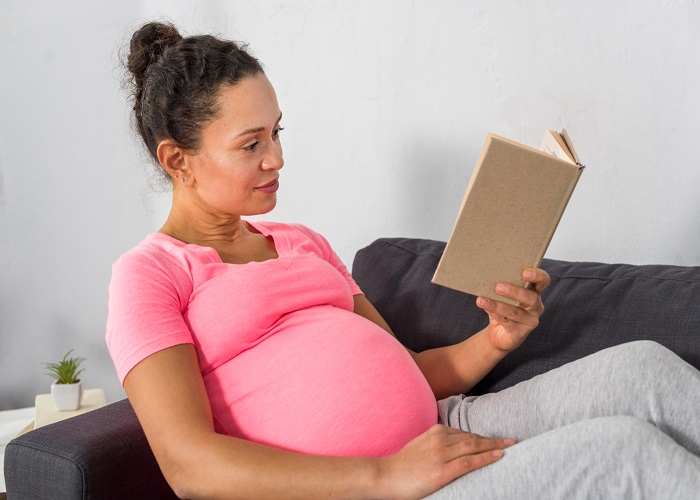Are you having trouble getting pregnant? While as normal as this question sounds, there are still thousands of misconceptions that our society tends to link with the term- Infertility.
And guess what makes it even worse? The secrecy and lack of knowledge on the topic. Remember, referring to your OBGYN before you plan your pregnancy is extremely important. In fact, infertility can show its signs way ahead in women. You can get treated in time by not ignoring these symptoms and making certain lifestyle changes.
Read this blog to learn about the 5 most common signs of infertility and what causes it.
5 Signs That Might Indicate Infertility In Women
1. Irregular Periods
While experiencing irregular menstrual cycles can be normal at times, it indicates disrupted ovulation patterns and should not be ignored. Remember, not getting your period on time does not necessarily suggest that you are unable to get pregnant. However, it does reduce the pregnancy success rate in a healthy woman as it becomes difficult to determine a certain ovulation date.
2. Hormonal Imbalances
From noticing unwanted acne and increasing facial hair growth to experiencing a sudden gain in weight, these all indicate an imbalance in the body’s hormones. It happens when a woman’s body produces an excess of male hormones known as androgens. While the reasons behind it can be anything from environmental changes to poor dietary habits, it is closely linked with infertility among women.
To learn more about it, read- PCOS: How it relates to pregnancy
3. Allergic reactions
Now, this sign might have sounded a bit unusual, right? Research studies on the same have concluded a possible indication between allergic reactions and women’s fertility. Women with a past medical condition of rhinitis, chronic asthma inflammation or other related illnesses are recommended to consult their doctor to know if the condition is in control and they are healthy enough to go ahead with the pregnancy.
4. Heavy and painful periods
Everyone experiences pain during the menstruation cycles; how can it possibly indicate that someone is infertile? Well, it’s not the painful periods but what’s causing the pain that one should be aware of. Having uncomfortable cramps is not known to decrease the fertility rate in women. However, the underlying cause of these cramps can sometimes be intense and impact your fertility. The most common causes of such pains include fibroids, endometriosis, ovarian cysts, etc.
5. Changes in sex drive
Changes in sex drive can be seen in many ways. When it comes to noticing low libido, it’s usually associated with men. Decreased sexual pleasure can result in low/ inadequate sperm count, ultimately causing infertility in men. Other sex-related issues can be identified with signs like erectile dysfunction in men and vaginal dryness in women.
What Causes Infertility in Couples?
Now that you know the 5 most common signs that can indicate infertility, have you wondered what exactly causes it?
While in some cases, infertility can be caused due to serious medical conditions in either the man or the woman, basic lifestyle choices and daily habits can also impact fertility to a significant extent.
Let’s look at some of the common causes that can lead to infertility in couples.
1. Substance abuse
Indulging in alcohol consumption, excessive smoking and any forms of drug abuse can severely affect the reproductive systems in both men and women. Studies have shown that females who consume alcohol in heavy amounts are more likely to encounter fertility problems than those who don’t. Other physical effects of substance abuse on fertility include the risk of STDs (sexually-transmitted diseases), sexual dysfunction, unhealthy shifts in menstrual cycles and so on.
2. Biological age
Women over the age of 30 show a steady decline in the fertility rate. It further drops down even more in women at the age of 35 and after. Not only does the fertility rate decline, but as the maternal age increases, pregnancy complications tend to increase too. The common pregnancy issues caused by the age at the time of pregnancy include- a high risk of miscarriage, abnormal positioning of the placenta, cesarean section and stillbirth.
3. Stress
Yes, experiencing high amounts of stress on a frequent basis is known to interfere with a woman’s ability to conceive smoothly. In fact, other mind-related illnesses, including depression, anxiety or even eating disorders, if left untreated, can severely affect the fertility levels in women.
Takeaway
While infertility caused due to serious medical complications might not be curable in certain situations, doctor-recommended medications and surgeries can effectively treat short-term infertility issues. If you are someone who is planning a pregnancy around this time, be sure that you and your husband consult your OBGYN. Remember, if treated in time, many conditions can be resolved healthily and result in pregnancy without any serious complications.
Read this blog to learn- How to increase fertility.






